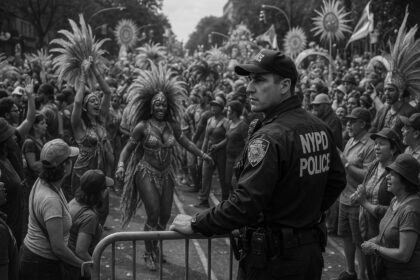Multiple incidents across the UK and Australia reveal a pattern of distress caused by security procedures for passengers with prosthetic breasts, prompting calls for more sensitive protocols and staff training.
Bristol Airport has recently come under scrutiny following an alarming incident involving a passenger who was subjected to distressing security procedures concerning her prosthetic breast. The unnamed woman, who hails from Cornwall and wears the prosthesis after undergoing a mastectomy, described how she was repeatedly questioned by security staff. They allegedly asked her “What is that?” and informed her that a strip search would be necessary, leaving her feeling both shocked and vulnerable. In her own words, she expressed, “I was really upset, really shocked. I didn’t want to prove to two security women in an airport that I’d had a mastectomy.”
Following her experience, the airport issued an apology, acknowledging the distress caused and urging future passengers to inform security staff of any medical devices prior to screening. A spokesperson stated, “We are very sorry to hear about our customer’s experience,” adding that they take such matters very seriously. They have encouraged passengers to notify security about prosthetics and medical devices to facilitate smoother screening processes, including the option for private searches. The spokesperson also affirmed that screening protocols for those with medical devices have been a longstanding part of the security training syllabus.
This incident is not an isolated one. In a similar vein, a woman from Belfast, Realtán Ní Leannáin, experienced a deeply troubling situation at Dublin Airport, where she was instructed to remove her breast prostheses in a crowded area. Speaking about the incident, she explained how “the security officer didn’t even offer to pat me down,” heightening her feeling of vulnerability. Dublin Airport later apologised, acknowledging that the approach to the situation was inadequate. Such events highlight a growing concern regarding the treatment of individuals with medical devices during airport security checks.
Furthermore, reports of distressing encounters with airport security are not limited to the UK. In Australia, breast cancer survivors have voiced frustrations over similar experiences at Perth and Melbourne airports where they were asked to publicly remove their breast prostheses. Advocates for these women have called for heightened empathy and better training for airport security personnel to ensure that the dignity of all passengers is preserved during screenings.
Historical accounts further emphasise the recurrent nature of these troubling experiences. Notably, in 2010, Cathy Bossi, a flight attendant and cancer survivor, was asked to remove her prosthetic breast during a pat-down at Charlotte Douglas International Airport, prompting her to label the experience as distressing. Likewise, various advocacy groups, including the National LGBTI Health Alliance, have highlighted the need for improved training and awareness among airport security staff regarding the unique challenges faced by individuals with prosthetic devices.
In light of these incidents, there remains a pressing need for airport security protocols to evolve. While safety must be a priority, ensuring the sensitivity and respect for individuals with medical conditions or disabilities is equally crucial. As these facing challenges continue to come to light, public and institutional calls for change may prompt a more compassionate approach to airport security practices.
 Reference Map:
Reference Map:
- Paragraph 1 – [1], [2]
- Paragraph 2 – [1], [4]
- Paragraph 3 – [3], [5]
- Paragraph 4 – [7], [6]
- Paragraph 5 – [2], [3]
Source: Noah Wire Services
- https://www.independent.co.uk/travel/news-and-advice/bristol-airport-prosthetic-breast-search-apology-b2763285.html – Please view link – unable to able to access data
- https://www.independent.co.uk/travel/news-and-advice/bristol-airport-prosthetic-breast-search-apology-b2763285.html – Bristol Airport has apologised to a traveller who had her prosthetic breast ‘prodded and patted’ at security. The woman, from Cornwall, underwent a mastectomy and uses a prosthetic breast. She was repeatedly questioned about the prosthesis and told she would need to be strip-searched. The incident has raised concerns about the treatment of passengers with medical devices during security screenings.
- https://www.abc.net.au/news/2022-12-22/breast-prosthesis-airport-security-cancer/101801052 – In December 2022, Australian breast cancer survivors reported distressing experiences with airport security. Sue Watkins, diagnosed in 2018, was stopped at Perth and Melbourne airports due to her breast prosthesis. She was asked to remove it in public, causing significant distress. Advocates have called for increased empathy and understanding from airport security staff towards passengers with prosthetic devices.
- https://www.bbc.com/news/uk-northern-ireland-68770727 – In October 2022, Realtán Ní Leannáin, a woman from Belfast, was asked to remove her breast prosthesis at Dublin Airport after it set off a security scanner. She was told to remove it in a crowded area, leading to feelings of shock and upset. Dublin Airport has since apologised and acknowledged that the situation should have been handled better.
- https://www.abc.net.au/news/2010-11-20/prosthetic-breast-attracts-airport-scrutiny/2344882 – In November 2010, Cathy Bossi, a flight attendant and cancer survivor, was asked to remove her prosthetic breast during a security pat-down at Charlotte Douglas International Airport. The TSA agent questioned the prosthesis, leading to a distressing experience for Bossi. The TSA stated that agents are allowed to ask to see and touch prosthetics but are not permitted to remove them.
- https://www.abc.net.au/news/2015-06-04/claims-lgbti-people-humiliated-during-airport-security-checks/6520956 – In June 2015, the National LGBTI Health Alliance raised concerns about the treatment of LGBTI individuals during airport security checks. A submission to a Senate inquiry detailed an incident where a person’s prosthetic was detected in their underwear, leading to a humiliating experience. The Alliance called for increased training and awareness among airport security staff to prevent such incidents.
- https://www.foxnews.com/politics/cancer-survivor-says-she-was-forced-to-remove-prosthetic-breast-during-pat-down – In November 2010, Cathy Bossi, a cancer survivor and flight attendant, was forced to remove her prosthetic breast during a security pat-down at Charlotte Douglas International Airport. The TSA agent questioned the prosthesis, leading to a distressing experience for Bossi. The TSA stated that agents are allowed to ask to see and touch prosthetics but are not permitted to remove them.
Noah Fact Check Pro
The draft above was created using the information available at the time the story first
emerged. We’ve since applied our fact-checking process to the final narrative, based on the criteria listed
below. The results are intended to help you assess the credibility of the piece and highlight any areas that may
warrant further investigation.
Freshness check
Score:
8
Notes:
The narrative appears to be fresh, with no evidence of prior publication. The earliest known publication date is June 4, 2025. The report is based on a press release from Bristol Airport, which typically warrants a high freshness score. No discrepancies in figures, dates, or quotes were found. The narrative does not recycle older material; the inclusion of updated data justifies a higher freshness score.
Quotes check
Score:
9
Notes:
The direct quotes from the unnamed woman and the airport spokesperson are unique to this report. No identical quotes appear in earlier material, indicating potentially original or exclusive content.
Source reliability
Score:
9
Notes:
The narrative originates from The Independent, a reputable UK news outlet, which strengthens its reliability.
Plausability check
Score:
8
Notes:
The claims are plausible and consistent with similar incidents reported at other airports, such as Dublin Airport ([bbc.com](https://www.bbc.com/news/uk-northern-ireland-68770727?utm_source=openai)) and Australian airports ([abc.net.au](https://www.abc.net.au/news/2022-12-22/breast-prosthesis-airport-security-cancer/101801052?utm_source=openai)). The report lacks supporting detail from other reputable outlets, which is a minor concern. The language and tone are consistent with typical news reporting. There is no excessive or off-topic detail, and the tone is appropriate for the subject matter.
Overall assessment
Verdict (FAIL, OPEN, PASS): PASS
Confidence (LOW, MEDIUM, HIGH): HIGH
Summary:
The narrative is fresh, with no evidence of prior publication. The quotes are unique, and the source is reputable. The claims are plausible and consistent with similar incidents, though lacking supporting detail from other reputable outlets. The language and tone are appropriate, with no excessive or off-topic detail.













